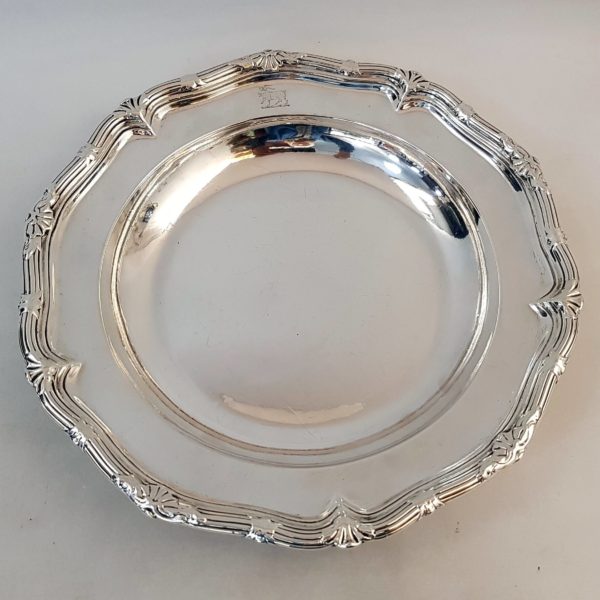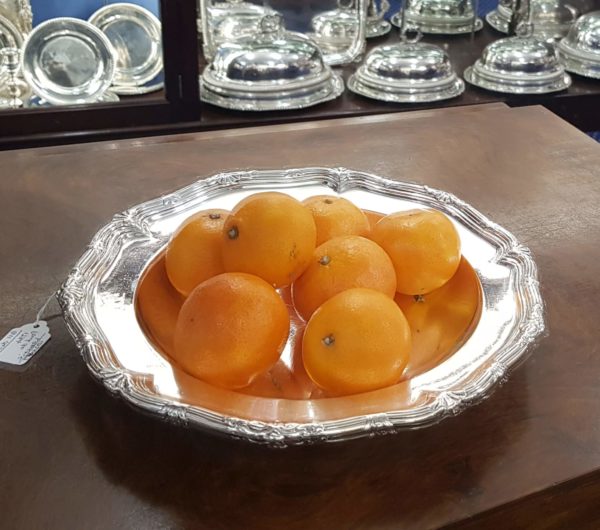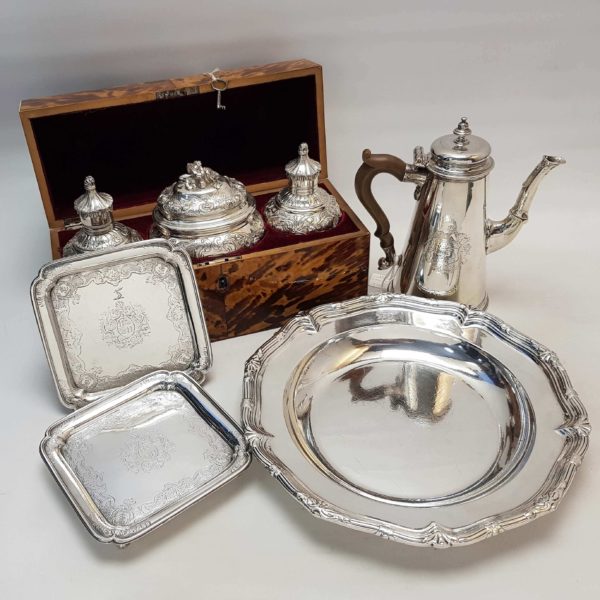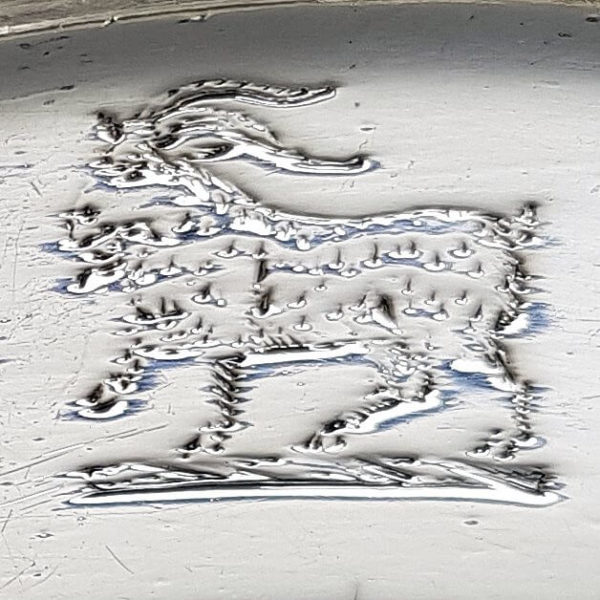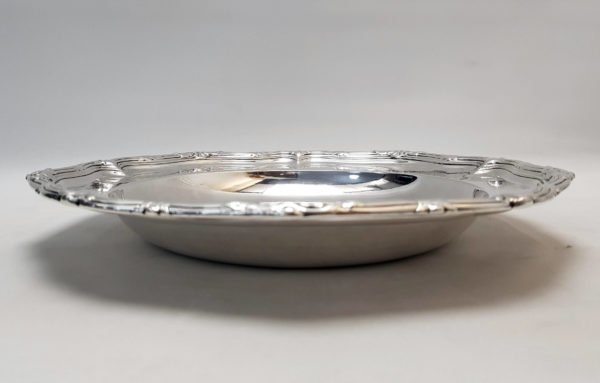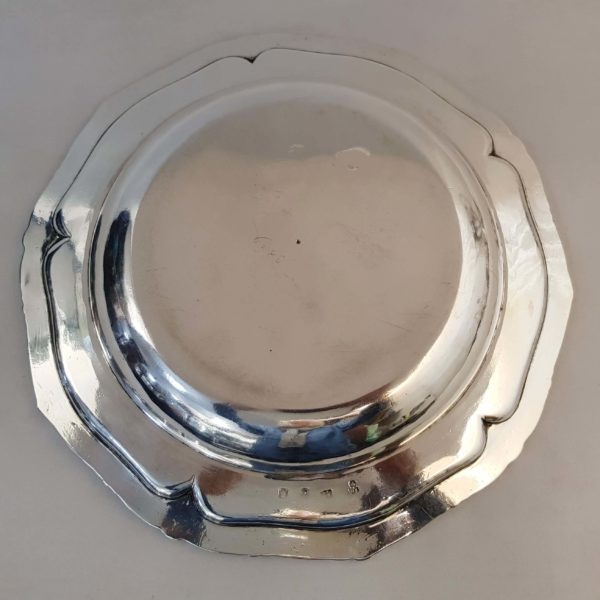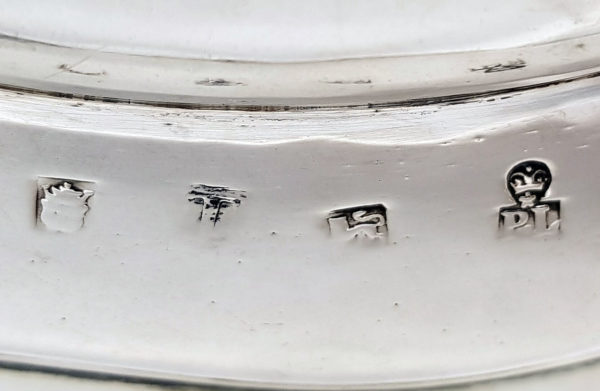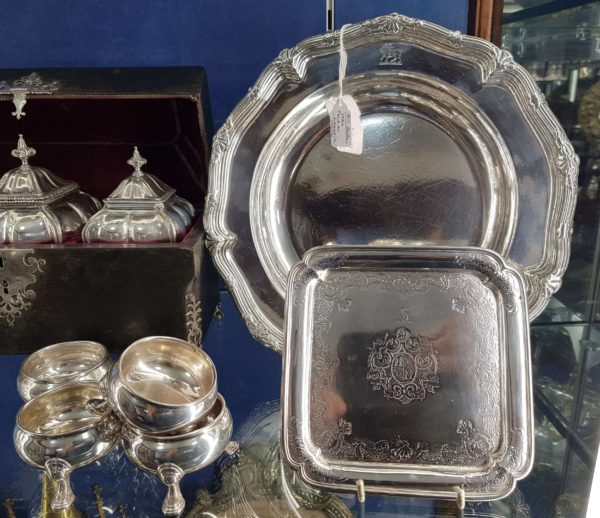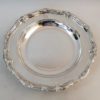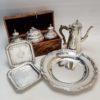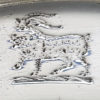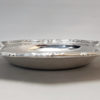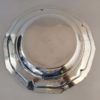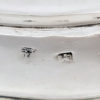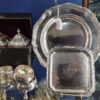George II Antique Silver Dish by Paul de Lamerie
SOLD
Stock: 10267
Date: 1734
Maker: Paul de Lamerie
Country: England
An important antique silver second course dish by the celebrated Huguenot maker Paul de Lamerie. The plate has a generous,...
Description
Description
An important antique silver second course dish by the celebrated Huguenot maker Paul de Lamerie. The plate has a generous, dished bowl with a shaped, reed and shell border. There is a hand engraved crest to the edge of the rim.
Weight 981 grams, 31.5 troy ounces.
Diameter 28.5cm. Height 3.8cm.
Date 1734.
Maker Paul de Lamerie.
Sterling silver.
18th century.
A very useful size, ideal for bread and fruit, and would make a valuable addition to any decorative table setting.
Marks. Stamped on the underside with a full set of English silver hallmarks and the scratchweight 32=9.
Literature. This dish would have been used on the dining table for serving a variety of foods including meats, fish, vegetables, flans, tarts etc, and also the dessert course. Second course dishes very often came from grand houses and would have been part of a suite of dishes including dinner and soup plates, oval serving plates and mazerines.
Condition
The plate is in very good condition with an excellent patina. Moderate signs of wear commensurate with age. Slight losses to the crest.
Maker Information
Maker: Paul de Lamerie
Paul de Lamerie (9 April 1688–1 August 1751). The Victorian and Albert Museum describes him as the "greatest silversmith working in England in the 18th century". Born in Bois-le-Duc, his French Huguenot family chose to follow William of Orange to England during the Glorious Revolution. In August 1703, de Lamerie became the apprentice to a London goldsmith of Huguenot origin, Pierre Platel (1659-1739). De Lamerie opened his own workshop in 1713 (1st mark "LA" - Britannia mark) and was appointed goldsmith to George I in 1716. 2nd mark 1733 - sterling mark). He worked in partnership with Ellis Gamble - formerly apprentice to Master William Hogarth- between 1723 and 1728. His early work is in the simple Queen Anne style, following classical French models, but de Lamerie is noted for his elaborate rococo style of the 1730s, particularly the richly-decorated works of an unidentified craftsman, the Maynard Master. Leaving his first premises in Great Windmill Street he moved to 40 Gerrard Street in 1738. Here he lived and probably had his shop, his workshops being located in one of the 48 properties he owned in the area. His customers included Tsarinas Anna and Catherine, Count Aleksey, Sir Robert Walpole, Benjamin Mildmay (Earl Fitzwalter and Viscount Harwich), the Earl of Ilchester, the Earl of Thanet, Viscount Tyrconnell, the Duke of Bedford, and other members of the English aristocracy. He also worked for King George V of Portugal. One of his productions to the Portuguese Court was a huge solid silver bath tub lost in the great 1755 Lisbon earthquake. A two-handled silver cup and cover by Paul de Lamerie, dated 1720, was among the wedding gifts of Queen Elizabeth II. Paul de Lamerie ranks as one of the stars of England’s finest period of silver. He was the most prolific silversmith of his time and his fame still lives on today.
Our Guarantee
Customer satisfaction is our primary concern
All silverware on our website is checked thoroughly prior to offering it for sale and every product listing contains a condition report and details of the silver hallmarks.
All items offered on our website include:
- Free Shipping Worldwide
- Tracked and Insured
- 14 day no quibble money back guarantee
- We are accredited members of LAPADA and conform to their strict professional standards
- We dispatch 1-3 days after receiving cleared payments
More detailed information about deliveries, returns and how to pay is available in the Help section at the bottom of this page.
